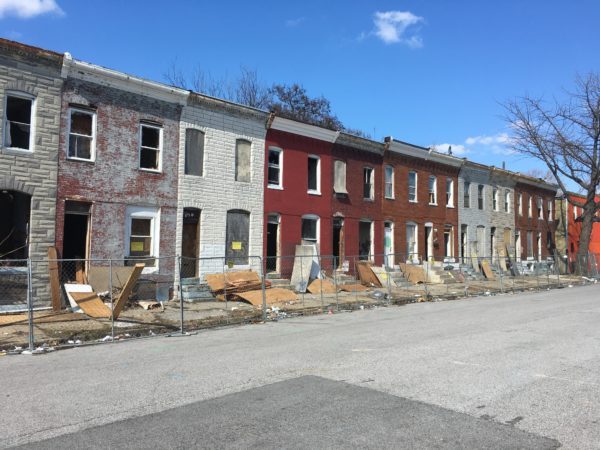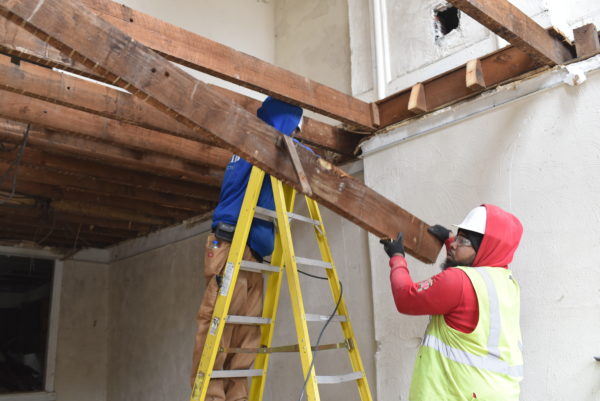

A New Canvas for Baltimore: Humanim Takes Innovative Approach to Rebuilding Baltimore City
The Maryland Department of Housing and Community Development features Humanim social enterprise Details Deconstruction in its latest press release. The article talks about the work Details is doing in Baltimore City to remove blight and create jobs, as well as its latest project on the 1500 block of McKean Avenue.
From the article:
With help from Maryland’s Project C.O.R.E., a Baltimore City-based nonprofit is expanding their unique approach to blight removal and job creation. Working along McKean Avenue in the city’s Sandtown-Winchester neighborhood, Details, a part of the nonprofit Humanim, is using Project C.O.R.E. funds for the deconstruction of dilapidated rowhouses. Deconstruction differs from demolition in that homes are taken apart by hand, piece by piece. In addition, each worksite entails the employment of 10 or more workers, many more than the usual demolition site.
Deconstructing the homes has some unique advantages, Carroll said. Rather than destroying the brick and wood in the homes through demolition, the usable materials are saved and reclaimed from the sites. They are then sorted offsite and resold across the country and even internationally. Of the homes being worked on currently, Carroll said the materials in more than half were in good shape. They expect to reclaim between 8,000 to 9,000 feet of lumber from this project, along with more than 56,000 bricks.
Job creation is also a vital part of their work; in fact, Carroll described it as “the primary goal.” Between 75-80 percent of their employees have spent time in prison and are now re-entering their communities and the workforce. Often, for people with a prison record, obtaining employment seems like an impossible obstacle. “These individuals need that first job, but it’s difficult for them,” Carroll said. “For many, this is their first, and now they’re excelling.”
Carroll described Humanim’s partnership with the department as a “game-changer.” “This particular venture…is really transformative in the opportunity to create a highway for individuals who have been released back into the workforce,” Carroll said. “None of it is doable without the partnerships. DHCD sees the value of the social impact, and those funds have been the catalyst for expanding this effort . …It goes beyond just taking down buildings.”
Read the full article at the DHCD’s website at Maryland.gov